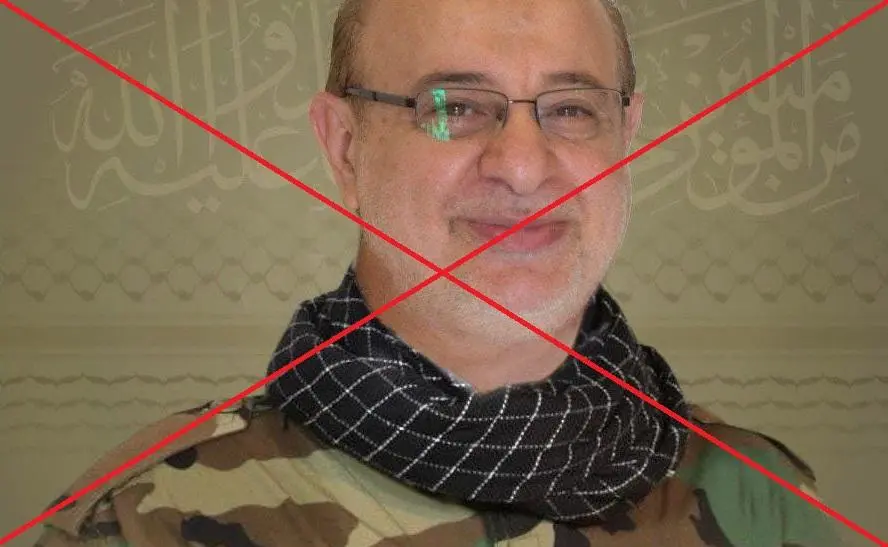
Terror organization: Hizballah
Status: “Considered to be the chief of staff of Hezbollah military force in the Southern front.”
Role: Ali Karaki, is a senior leader within Hizballah’s Jihad Council. He led Mu’awaniyeh 105 (Southern Command) and was responsible for military operations in southern Lebanon.
Karaki has been in Hezbollah since its establishment. Over time, he rose through the ranks and took part in the 2006 Lebanon War. Karaki later became a member of Hezbollah’s Jihad Council, which is Hezbollah’s supreme command and served as the commander of the Southern Front. Additionally, he held Guinean citizenship.
Karaki had been involved in various terrorist activities, particularly in Southern Lebanon, and had been linked to Hezbollah’s strategic operations against Israel.
In February 2024, Israel attempted to assassinate him in a car bombing in Nabatiyeh, but he was not in the target vehicle. After the assassination of Ibrahim Aqil, he was appointed to serve as one of his two successors in leading the campaign against Israel on the northern front of the Israel–Hamas war. He was considered the number 3 commander in Hezbollah after Aqil’s assassination.
On 23 September 2024, it was reported that Karaki was targeted in an airstrike by Israel while he was in an apartment in the Bir al-Abed area of the Dahieh district in Beirut. He was injured but survived. His survival was attributed to the IDF using an insufficient quantity of explosives.
On 27 September 2024, he was killed alongside Hezbollah’s leader Hassan Nasrallah in another airstrike in Beirut. Hezbollah announced Nasrallah’s death the next day after his body was found under the rubble.
Born: 25 February 1967;
Place of Birth: Ein Bousewar, Lebanon;
Gender: Male;
Citizen: Guinea;
Passport: RL1025526 (Lebanon) issued 14 May 2007 expires 13 May 2012;
Known also as: Muhammad Karaki; Muhammad ‘Ali Karaki; Abu Al-Fadl.
Activities:
Ali Karaki, is a senior leader within Hizballah’s Jihad Council. He led Mu’awaniyeh 105 (Southern Command) and was responsible for military operations in southern Lebanon.
Southern Command was divided into five geographic fronts (Mihwar), each consisting of a group of villages in a geographically contiguous strip.
